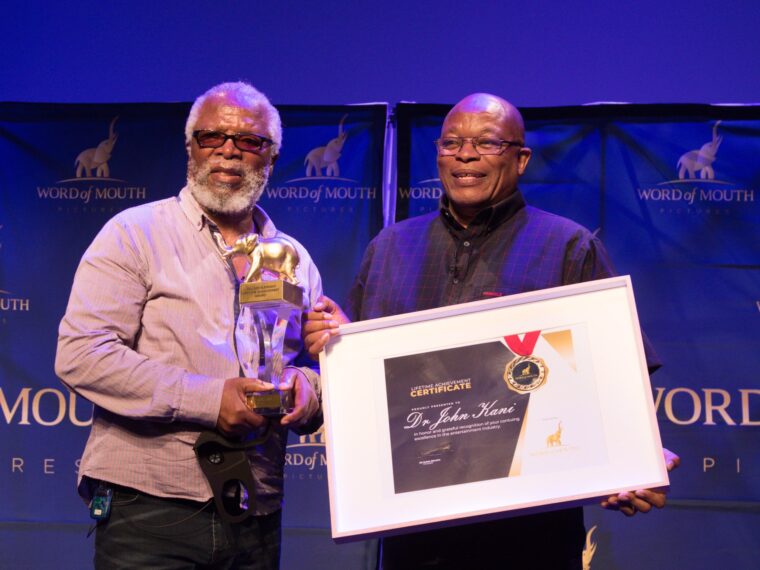By Staff Reporter
A few people will attest to having led a life littered with an array of blessings, and Duma Ndlovu happens to be one such.
Once a starving journalist, today a he is double honorary PhD recipient from the University of KwaZulu-Natal (Creative Arts) and the University Of Venda (English).
In-between, he launched himself as a producer of one of the longest running TV soapies, Muvhango, a music producer, poet, playwright, casting director for the world famous Lion King and chairman of the South African Music Awards, to mention a few.
Spurred by his inquisitive mind and the gift of the pen, together with his own writer’s association involvement back in 1977, Duma’s fledgling career was canned when he had to leave the country handed by the apartheid regime.
Duma recalls this period as a time of a course of great benediction. It was long overdue.
“I grew up in a poor home and vowed, as a child, that my children will not grow up the way I did. So, I went on a search from a young age. I used to visit libraries to read books and search for scholarships and bursaries to go and study overseas. I was passionate,” Duma said.
He hit the ground running in New York at age 23 and enrolled for a degree in Mass Communication at the Hunter College and later a Master’s degree in Theatre and Film.
He cut his teeth in the new culture of the Americans in New York, observing how even his fellow countrymen bestowed with fine communication skills struggled to be heard in the US, when he realised more cultural differences.
“One day, while getting an orientation tour of the varsity, I noticed a pay newspaper stand, wondering how the authorities could keep tabs on it. I asked, ‘What if someone takes two when they have paid for just one?’ and the answer from the guide was: ‘Why would you do that?’ and I released I was out of Africa.”
But Africa remained with him. He heeded the call in 1985 when he established the Woza Afrika Foundation, a platform that gave young black cast and crew as well as singers, an opportunity to pursue their dreams and also raise funds to support the overall arts in South Africa.
Through Woza Afrika, a festival of music and theatre showcased a range of South Africa’s greatest. One of them was Mbongeni Ngema’s Woza Albert.
This friendship would continue until the production of Sarafina. The New York Times wrote a series of fascinating stories on the production, prompting the idea of a movie and, as we all know, the rest is history. He also taught African-American literature and music at the State University of New York. Education seems to run neck-and-neck with the things he cherish and has been extremely vocal about its importance in the arts despite arguments by those who have winged their careers.
His only regret is not “having finished my Masters”. So, he is back at Wits University studying for his Master of Arts in Drama.
“There is a vast difference between those who have trained at institutions of higher learning and those who didn’t. Converting this industry into a home for those who have studied in chasing the dream is my obsession.”
Instead of coming back to exhibit popular snobbery, Duma walked back into political war in 1992 and rolled off his sleeves to use the arts to douse the raging fires.
Together with ace producer, Chicco Thwala, they record the epic Peace In Our Land album. It was shortly after this successful album that he started working on the legacy of the TshiVenda soapie, Muvhango.
After that, he commanded a Midas touch.
“I have been blessed in that I have gone after things I wanted to do and succeeded in doing them. Have I achieved all that I ever set out to achieve? I am not quite sure, but I have been blessed,” he said.
So blessed that Duma and Mbongeni were honoured by a United States Congressman, Charles Rangel, for their contribution to the Arts by declaring 9 May as Duma Ndlovu and Mbongeni Ngema Day in Harlem, New York.





